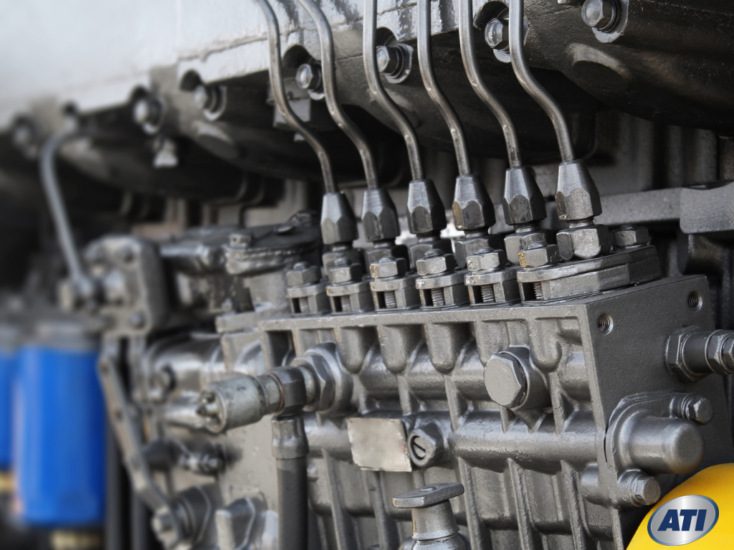What is a Heavy Diesel Mechanic and What are the Requirements to Become One?

Heavy diesel mechanics are tasked with the inspection, repair, and maintenance of vehicles and machines used in transport, construction, and farming. Heavy diesel mechanics work on biggest machines and engine to ensure that they run safely and efficiently. These mechanics understand how to troubleshoot problems and are always ready to get dirty when it comes to disassembling and reassembling heavy engines and similar components.
They may work out in high in the air, fixing a crane or in a field, repairing farm equipment. Heavy diesel mechanics can work for a company fleet or they may choose to be self-employed and work in a shop. Some end up working for the government and work on military equipment and tanks. In addition to repairing engines, heavy diesel mechanics must have sound knowledge of fuel and brake lines, hydraulics, electrical systems, and more.
What You Need to Know to Become a Heavy Diesel Mechanic
Heavy diesel mechanics perform diagnostic tests and determine a cause of action for damaged systems and parts. They retrofit engines, repair malfunctioning components, adjust steering breaks, change hydraulic fluid, change breaks, and replace worn-out parts. The mechanics may have to disassemble and reassemble parts of heavy vehicles or machines so they can replace, repair, or recalibrate components.
Heavy diesel mechanics routinely integrate and use computerized equipment along with pneumatic wrenches, lathes, pliers, welding torches, hydraulic jerks, precision gauges, screwdrivers, and mallets. They also test drive heavy engine vehicles before and after repairs. The onboard computer program is used to find problems or make adjustments.
Job Skills and Requirements
Employers look for when it comes to hiring several skills and qualities. Some of them include:
Customer Service: Heavy diesel mechanics have to interact with customers and talk about their vehicle problems as well as options to fix those issues. For this reason, a diesel mechanic should be friendly, a good communicator, a good listener, and always available to respond to a customer’s questions.
Dexterity: Diesel mechanics perform their duties with their hands, this means, and working with both complex and simple tools to disassemble and reassemble components in a vehicle. It’s important that they have good hand-eye coordination.
Attention to Detail: Heavy vehicles and machines are complex to understand and work with. A missing bolt or a loss wire can be the primary cause of a bigger issue. A diesel mechanic must have an eye for detail when working with engines and their components.
Technical and Mechanical Proficiency: Heavy equipment mechanics will have to tear down and build an engine correctly. A good heavy diesel mechanic should understand and use an assortment of applicable tools and technical equipment. They should have good analytical skills to analyze all components and diagnose issues.
Electrical Skills: A mechanic must have the ability to use complex software programs and computers to examine onboard computers and similar systems. They should also know how to interpret technical manuals and diagnostic reports.
Benefits of Having a Formal Degree in This Field
Before starting out in this profession of heavy diesel mechanic, your best bet is often receiving a formal degree. Having a certain level of knowledge when starting out as a heavy diesel mechanic is important, especially given all the complexities involved in diesel repair.
This is the main reason why many employers in this field place a high value on formal education. A formal training program where specialized tools and modern test equipment are available can give you a good understanding of practical diesel engine maintenance/repair and heavy vehicle subsystems.
You should be exposed to classroom instructions and gain hands-on experience in a real shop setting. You could learn the best diagnostic methods and repair procedures. You might even have an added advantage if you choose a program that gives you a foundation in business management and customer service. Heavy diesel mechanic who complete a one- to two years post-secondary training require less on-the-job training and this brings an added advantage when it comes to moving up the career ladder.
Are You Ready to Change Your Life?
If you’re interested in a career as a heavy diesel mechanic, consider Advanced Technology Institute’s Associate of Occupational Science Degree in Heavy Vehicle Technology with Service Management degree program. For more information, contact us to speak with a helpful admissions counselor.

Industry Knowledge
Welcome to the Advanced Technology Institute's Blog, your resource for industry insights and discussions on technologies shaping the future of automotive, heavy vehicle, hvac, welding, and other related career paths.
Explore how ATI's curriculum and hands-on learning opportunities can propel your career in the tech-driven world.





